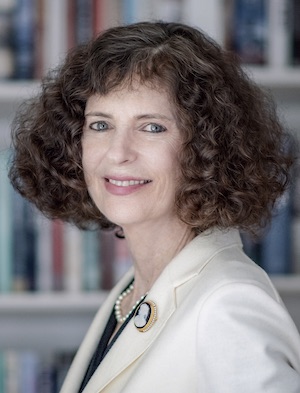By Savannah Jelks
Joan Waugh is one of this year’s Phi Beta Kappa Visiting Scholars. Waugh, a professor of history at University of California, Los Angeles, has already virtually visited two schools, the University of Mississippi and the University of Florida, with a third upcoming visit to North Carolina State University. As a historian, Waugh specializes in the Civil War, Reconstruction, and Gilded Age eras. She is the recipient of Huntington Library, National Endowment for the Humanities, and Gilder-Lehrman fellowships, and she serves as president-elect of the Society of Civil War Historians.
Waugh noted that reading history books has been a part of her life since she was young. She particularly enjoyed biographies growing up, especially those about people from the Civil War. However, Waugh’s interest in history was unusual in her family, whom she described as “very business oriented.” Of all her family members, she was the biggest reader, and her interest in history stuck with her. Her graduate work focused on gender in the nineteenth century, in particular the life and work of Josephine Shaw Lowell, a prominent social reformer.
Outside of the classroom, Waugh focuses on public history. According to her UCLA profile, “she has participated in local, state-wide, and national teaching workshops for elementary, middle-school, and high school teachers. She led groups of Southern California teachers on Civil War battlefield trips, and developed and led a summer travel-study program for UCLA students to go on a two-week field trip” to sites such as Gettysburg, Harpers Ferry, Antietam, and Richmond. Waugh said that the opportunities to visit historical sites and learn about the ways they are interpreted are wonderful. “They allow historians to relate to a larger audience and examine how the meaning of a site has changed over the years,” she observed.
Waugh also acknowledged the challenges of teaching history. In her opinion, the greatest of these are “the politicization of history and society” and the fact that, in general, “students are less interested in taking history courses.” Waugh described the toxic atmosphere that clouds public memory of historic events, but despite the heightened politics surrounding history, she said that her philosophy towards teaching remains the same. “We as historians have a different relationship to the past than an activist would,” she noted. “Historians want to try and understand the voices of the past.” The people of 1860 were born into a very different world than we are, she explained, but it is important to try to understand their motivations because they are not the same as ours. Waugh mentioned that this process is more difficult today, but it is a worthwhile journey. She emphasized that it is “more imperative to give students a sense of the past to be better armed to understand the present.”
The second greatest challenge to teaching history, Waugh observed, is that enrollments in university history departments are diminishing and there are fewer history majors. “In general,” Waugh said, “the humanities are all facing this crisis.” Cutbacks that are a feature of small liberal arts colleges and state universities are accelerating under Covid-19. These dropping numbers endanger graduate programs in history as well.
With all of these challenges, is there such a thing as the right way to teach history in the classroom? Waugh seems to think so. Part of that job entails simply being enthusiastic about the subject and respecting your students. A large part, however, is teaching students to “respect the past, not replicate it,” she said. Students need to know that the history of our country is a mixture of the good, the bad, and the ugly. “We want to confront the past, not shrink from it,” she explained. “We should not deny who we have been and where we are now.”
When asked what she would like readers to take way from this article, Waugh answered that she wants readers to “appreciate what an important and vital role the unfolding of American history has played and continues to play in our education system.” History is alive and well in our institutions, and she believes that “we should do everything we can as historians to make sure history is taught at elementary, middle, and high school levels.”
Savannah Jelks earned her bachelor’s degree in history from Union College, where she was inducted into Phi Beta Kappa in May 2020. Union College is home to the Alpha of New York chapter of Phi Beta Kappa.




